2019 Toyota Prius: The 4WD Champion of Winter Roads
Toyota Prius has remained the flagship product of the company since 1997. However, in recent years, the Prius has been haunted by declining sales. To spice things up, Toyota launched the Prius AWD-e last year with much fanfare.
4WD Prius got a new engine to power its front wheels while the rear ones are driven by an electric motor. The first AWD car in the hybrid category also got some new style elements to differentiate from the earlier versions like the AWD hybrid 2018.
But how does Prius 4x4 turn out on the roads? The Prius wheel drive is designed to make driving easier on snow roads, but does it perform to the mark? How about Toyota Prius 2019 MPG?
We know you have a lot of questions, and we are going to answer all of them in our post. We will have a closer look at the 2019 Prius hybrid, and talk about specifications, performance, new Prius MPG, and more, so stay tuned!
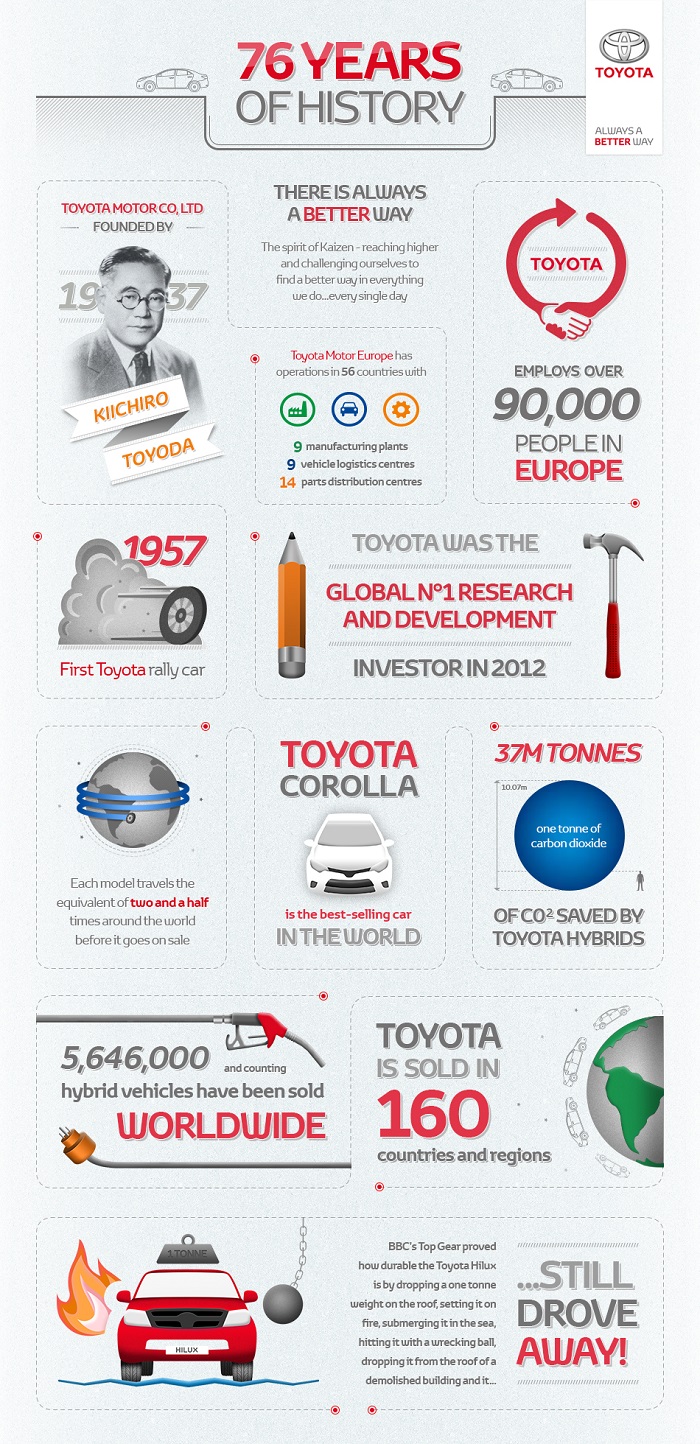
Toyota Prius First AWD Car: What's Under the Hood
The powertrain of the 4x4 Prius is similar to the other models of the Prius family. A 1.8-liter, four-cylinder gasoline-powered engine delivers 121 hp and 05 lb-ft of torque to drive the front wheels. The engine is coupled with two motors that provide the much-needed power to push through snowy roads.
The 2019 AWD Prius uses a 6.5-amp-hour nickel-metal hydride battery for the hybrid system on the front wheels. This is an upgrade from the 3.6-amp-hour lithium-ion batteries in other Prius models.
According to Toyota, the nickel-metal hydride battery performs better in cold weather without causing any problems. That makes Prius batteries withstand cold much better than its predecessors.
The rear wheel of the Toyota Prius 4WD uses a smaller 7-horsepower motor to assist the front wheels. The motor is quite small and sits comfortably beneath the backside cargo floor without any hassles. The rear electric motor uses a wound design instead of the standard magnet-type motors used in the older versions of the car.
The rear motor helps the car gain momentum at low speeds. It helps the Toyota e hybrid accelerate from rest and gain speeds of 6 mph. After that, the motor only engages when the front wheels skip a rotation on icy roads.
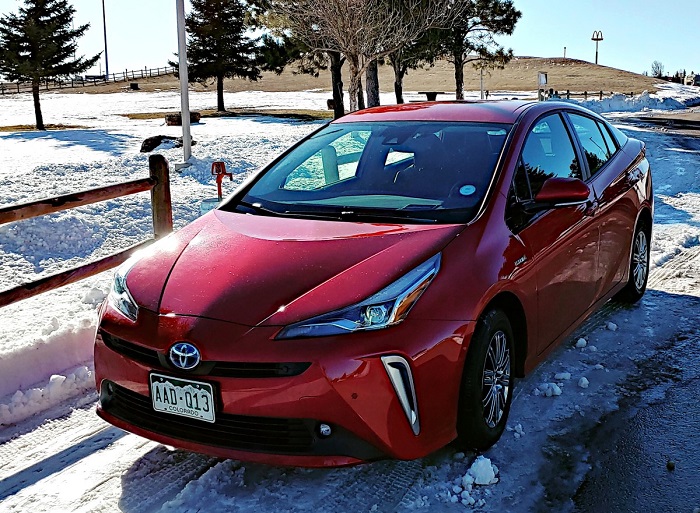
Toyota didn't go after a lot of power for the rear axle, which is evident from the small motor. They just wanted to give a push on snowy roads when the front wheels don't do their job. So, how does the new engine setup translate on the road? How about the changes in 2019 Toyota Prius MPG?
Let's find out!
Toyota Prius Wheel Drive: The Performance on the Road
Toyota Prius 4 wheel drive hybrid offers a smooth performance without any hiccups. You are not going to notice much of a difference in handling in dry and warm conditions. The difference becomes prominent when you are handling snow and slush.
The powertrain of the Prius 4WD helps the car get started efficiently on icy or wet roads. The rear wheels don't spin when you pull away from a stop and instills some confidence in the driver on snowy conditions. You can also take advantage of the same performance in the rainy season.
The rear wheels help out the Prius 4WD to gain momentum on uphill rides. The traction control system also kicks in and helps you climb inclines. From inside the car, you don't feel much of a difference, and the experience is comparable to other Prius models.
The car is around 150 to 170-pounds heavier than the front wheel drive models, but that bring any difference in handling. The 4WD version is also 0.2-inch higher than the standard Prius and can make driving comfortable in off-road conditions.
To sum it up, the Prius AWD-e is suitable for commuting in the cities. The Prius engine is smooth as ever and handles potholes and bumpy roads with efficiency. However, the car lacks the punch on the highways and is slow to accelerate. The road and wind noise is also quite noticeable inside the cabin.
For snowy conditions, the car can handle moderate levels of extreme weather. But don't expect it to assist you in adventures where the road is made unreachable by the snow cover.
Points to note:
- Invest in a good pair of winter tires to maximize stability
- Test drive to see if the cabin noise annoys you at high speeds
- Engine sounds strained when you push on the accelerator
Now, let's get down to the most important consideration- 2019 Prius MPG!
2019 Prius MPG: How Much Can You Expect
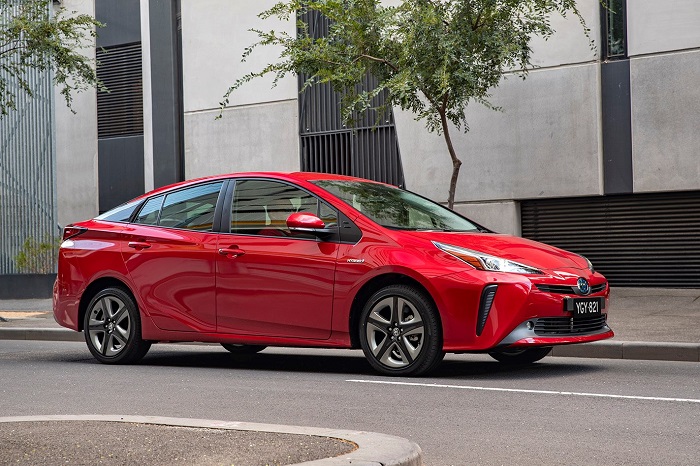
So how is the 2019 Prius mileage? Is it better than Toyota Prius 2018 MPG? Did the addition of AWD capability make an impact on Prius AWD MPG?
You might be disappointed to know, but the Prius 2019 MPG is not really impressive when you compare it to the Prius MPG 2018 or FWD versions. However, that doesn't make the fuel efficiency any bad.
The factory-tested Prius MPG 2019 is 52-miles-per-gallon in urban conditions, and 48-MPG on highways (for AWD-e LE and XLE models). The combined 2019 Prius gas mileage is 50-MPG.
The AWD hybrids 2019 from Toyota offer better figures on the road. You can expect the Prius to return over 50-MPG in cities and low60-MPG on highways. That's not really a bad performance and make the Prius AWD 2019 quite fuel-efficient.
Now, let's check out the styling department.
Toyota Prius 4WD 2019 Looks and Interiors
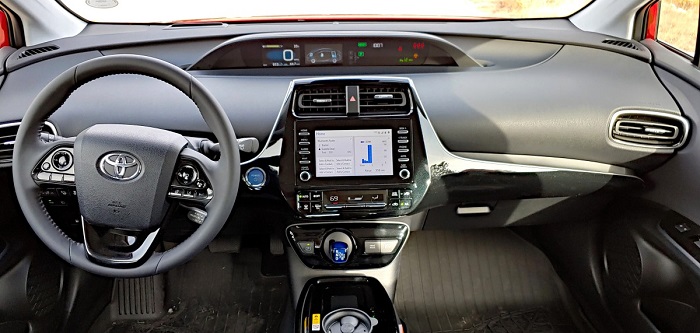
Toyota has retained most of the styling elements from the previous version of the Prius. However, the front bumper, headlights, and taillights have undergone a bit of transformation. Toyota has also added a pair of fog lights to make driving easier on those cold and misty mornings.
The car appears a little bit less edgy with smooth corners. The 2019 Prius also got two new colors, Supersonic Red and Electric Storm Blue.
The cabin inside is quite roomy with a lot of space in front of your legs and above the head. The controls and consoles are functional, and there is nothing to confuse you. We only wish the advisory lights that notify of issues in the car were on the driver side, instead of being on the passenger's side.
The interiors are nice but not luxurious or plush. Toyota concentrated more on the hybrid experience rather than spending unnecessarily on interiors.
The digital speedometer and color trip computer are highly visible and easy to read. Toyota has provided two extra 2.1-amp USB ports at the backside for passengers to recharge their devices. The wireless charging pad in the front is quite a nice addition too. The only drawback is its quite slippery and doesn't grip your phone the way it should.
The hybrid even offers a bit of storage space when you lift the back sits. Overall, the Prius 2019 has pleasing looks and makes it clear you are driving a hybrid.
Prices and Verdict
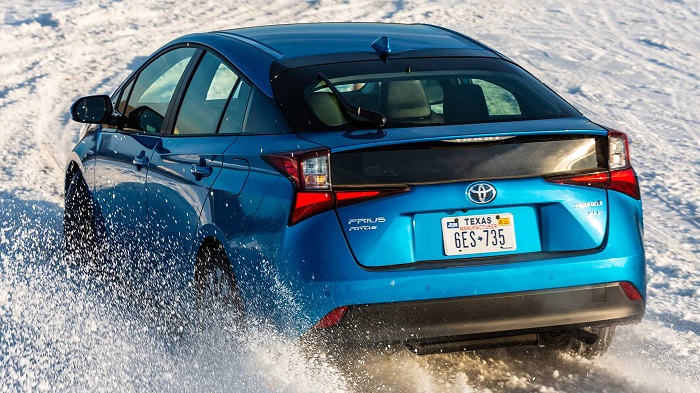
The 2019 Toyota Prius is economically priced to grow the customer base for hybrid cars. You can get a fully-featured hybrid at much lesser than $30,000 with 4WD and impressive safety features. The 4WD versions cost only $1,400 more than the FWD LE version, and $1,000 more compared to the XLE form.
Considering a fuel efficiency of at least 50-MPG, it can be a suitable car for urban conditions. You can also take on icy and snowy roads, but do invest in a good pair of snow tires. The 2019 Prius has similar advantages and disadvantages of previous models, and the only thing that's changed is the powertrain.
A 4WD hybrid at this cost should appeal to those who need the extra AWD power to handle winter conditions.
About the authors
The CarAraC research team is composed of seasoned auto mechanics and automotive industry professionals, including individuals with advanced degrees and certifications in their field. Our team members boast prestigious credentials, reflecting their extensive knowledge and skills. These qualifications include: IMI: Institute of the Motor Industry, ASE-Certified Master Automobile Technicians; Coventry University, Graduate of MA in Automotive Journalism; Politecnico di Torino, Italy, MS Automotive Engineering; Ss. Cyril and Methodius University in Skopje, Mechanical University in Skopje; TOC Automotive College; DHA Suffa University, Department of Mechanical Engineering



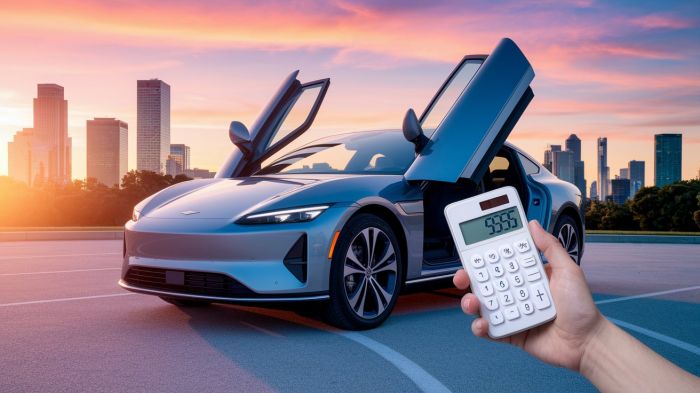


Add comment